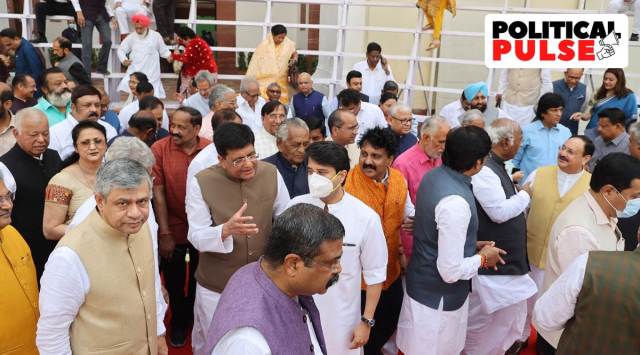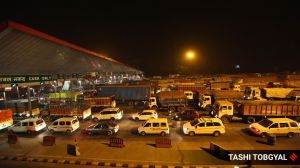A number of Rajya Sabha members who are reitiring gave farewell speeches in the Upper House on Thursday. Here is what they said:

“Democracy, no doubt, is about the majority. But democracy can’t live without the Opposition, which means the minority. Democracy means both majority and minority. When the majority prevails, the minority should not be ignored. The Opposition gives vibration to democratic bodies. I hope both sides and all of us will realise this,” he said.
 Prasanna Acharya (BJD)
Prasanna Acharya (BJD)
Acharya is the leader of the BJD parliamentary party in Rajya Sabha. His remarks are significant as the BJD is seen as a fence sitter which has, however, on many occasions sided with the government when it came to passage of crucial Bills.
 Anand Sharma (Congress)
Anand Sharma (Congress)
Anand Sharma (Congress)
Pointing out that political and ideological differences are the strength of democracy, Congress’s Anand Sharma said these differences should never be made “personal” and that there should not be any bitterness injected.
He said democracy will flourish when national parties remain strong and regional parties thrive, as India cannot have just one idea and one vision.
Story continues below this ad
He also said it was sad that political opponents are seen as enemies nowadays.
“The kind of bitterness that we are seeing of late… it in a way hurts the dignity of this great House. I am proud that during my long parliamentary life… there has not been a single instance when somebody has objected to a word that I had said. Never ever… even one single word has been expunged in this House,” he said.
 Swapan Dasgupta (nominated)
Swapan Dasgupta (nominated)
Swapan Dasgupta (nominated)
Swapan Dasgupta suggested it was time to have a look at whether lawmaking should become the central focus of the parliamentary agenda or to “move to something else”.
“This is one of the last few sessions which will be held in this Parliament building. I think, soon, everybody will move to the new one. In this context, maybe, I would like on the strength of my experience of the past six years to make one suggestion to whoever is listening. The parliamentary agenda is structured on the basis of lawmaking. The second half of every parliamentary day is taken up by lawmaking; that was certainly the necessity of a time when India was building an edifice, a structure,” he said.
Story continues below this ad
“Today, we have come to a situation where lawmaking is less important than delivery, performance and facilitation. Therefore, in my view, when we will move, when this House and the other House move to the other Parliament building, I think, there is a case, and I am saying this on a very personal level, for actually looking at whether lawmaking should become the central focus of the Parliamentary agenda or move to something else,” he added.
 Naresh Gujral (Akali Dal)
Naresh Gujral (Akali Dal)
Naresh Gujral (Akali Dal)
Shiromani Akali Dal’s Naresh Gujral, a three-time Rajya Sabha MP, proposed that Parliament should have one special session every year dedicated to discussing the problems the country is facing. The session, he said, should be devoid of government business and criticism of the government.
“I have seen in my 15 years, a lot of disruptions in this House, including the whole session being wiped away. I have moved one Private Member’s Bill which says the House must meet for 100 days and if there are disruptions, then, the House automatically gets extended by that many hours or days. And I think… there should be one session every year where there is no government business, no criticism of the government, but we discuss ideas which face the country, the problems that face the country and together we do sagarmanthan and find solutions for this country,” he said.
Satish Chandra Misra (BSP)
 Satish Chandra Misra (BSP)
Satish Chandra Misra (BSP)
Bidding farewell to Rajya Sabha after 18 years, BSP’s Satish Chandra Misra reflected on his party’s electoral slide and made a push for a change in mindset to eradicate the caste system. He also said ups and downs were natural in politics.
Story continues below this ad
“When I entered the House in 2004, the BSP had only four members. There were two, and two of us — BSP chief Mayawati and I — joined. We took our oath together. From four… we saw the growth… At one stage we were 15. It is another matter that we have come down. These ups and downs… it is nature’s law… this will continue. I think we should not change our thinking on the basis of where we were and where we are now,” Misra said.



 Prasanna Acharya (BJD)
Prasanna Acharya (BJD) Anand Sharma (Congress)
Anand Sharma (Congress) Swapan Dasgupta (nominated)
Swapan Dasgupta (nominated) Naresh Gujral (Akali Dal)
Naresh Gujral (Akali Dal) Satish Chandra Misra (BSP)
Satish Chandra Misra (BSP)





























